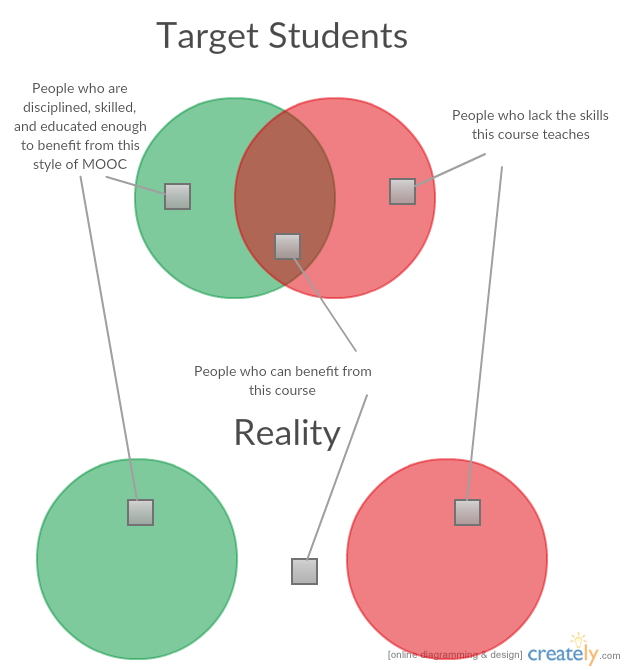As I stated in my last post, I’ve been using free MOOC resources to prepare for university-level learning. I logically thought this free course would be a good place to start. Here’s my review of it:
Course title: Taking Your First Steps Into Higher Education
Provider: The Open University via OpenLearn
Price: Free
Level: Introductory
Effort: Self-paced, 24 hours, estimated 8 weeks
Prerequisites: None
Completion awards: Statement of Participation, Open Badge
About the course:
This course draws material and inspiration from the Open University’s Access modules, Y031, Y032, and Y033 for content on Arts & Humanities, Social Sciences, and STEM subjects, respectively. The full Access modules give a small and non-threatening taste of higher education study, to help you determine if it’s right for you. This MOOC is, then, really a taster course for a taster module. In theory, it’s meant to help you evaluate which of the general subject types you might like to study, and if you think you might enjoy (or be capable of) studying in higher education.
In reality, it comes off more like a commercial for the Open University, but one with its heart firmly in the right place. It does do what it says it will do, but it’s a bit rhetorical in that it assumes and then insists that the answer is always that if you’re at all interested, then its right for you, and tries to convince you of this. But this is only for higher education in general. It’s a bit of a cheerleading exercise rather than an objective view giving both positive and negative views.
It does an excellent job of preparing those who have not studied at higher levels for a fundamental shift in learning philosophy, the change of focus from led instruction to self study. It doesn’t do much for giving you tools for overcoming this shift, but does impress its importance.
The arts and humanities discussion was the most surprising for me. I came into this module with a prejudice against the very nature of art history, evaluation, and appreciation. But within just a few short questions, Dr. John Butcher had shifted my world in response to art, particularly contemporary art. He had also done it in the section on poetry evaluation. I was able to access a poem I’d studied earlier and instantly recognise values in it I had never seen before, found an obvious meaning I’d never considered, and even uncovered additional subtext relative to modern philosophy that was shouting out for me to share my experiences with others.
The social studies sections were just the opposite. Dr. Jonathan Hughes felt patronising and dismissive in his lecture. I wasn’t at all surprised to learn that he was the lead on the project for this MOOC, with its rhetorical approach and cheerleader enthusiasm. It’s a terrible shame, too, because I’m deeply passionate about social sciences, particularly social psychology and development. But he would repeatedly invite discussion, only to then give the ‘right’ answer. At one point, he invited the student to compare their personal answers to his … Only to have his answers (and not even his exact answers, but a specific interpretation of them) be the basis for quiz questions later. I found it quite insulting.
Finishing things up with reliable STEM subjects was a relief. Dr. Laura Hills certainly knew how to lecture and prepare learning materials. Her approach quickly invited independent thought and provided the confidence (to me at least) that I felt the course should have been promoting all along.
Over all, I feel that the MOOC lacked substance of useful content unless you A) want to go to university, and B) don’t know if you’d rather take humanities, social sciences, or STEM subjects. Which should bring the total number of humans on this planet who would actually find the course useful to … Zero? Nobody wants to go to university without at least having an idea of what kind of studies they want to pursue. Sure, they might not be able to decide between two or three degrees, but to have no clue? Whatever.
I do feel that I gained a lot of personal insight from this however, especially thanks to the amazing questions from Dr. Butcher. It just wasn’t the insight I was expecting. The warnings about the pitfalls of self study and few other revelations scattered throughout the sections are useful and appreciated, and will be remembered, but possibly not at the cost of the 10 real hours or so I spent with it.
